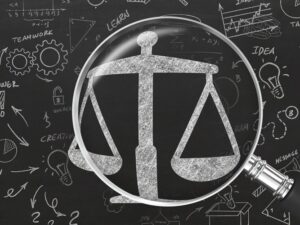Category: Patents / Trade Secrets

Patent litigation funding: a rising trend
Access to third-party funding is becoming a key tool for businesses with valuable patents and limited resources to be able to litigate on equal terms and promote innovation. Third-party litigation funding (TPF) has become a real alternative for startups and SME’s to be able to face the high costs that a lawsuit may involve and […]

When a lack of technical legal rigor turns out expensive: patent invalidation and legal costs due to recklessness in the FREENOW case
Besides invalidation of the patent, the lack of a legal basis in patent infringement and invalidity claims can also result in an order to pay costs due to recklessness. The judgments in the FREENOW case reaffirm the need for an exhaustive and well-reasoned analysis in intellectual property lawsuits and serve as a reminder that abuse […]

How do you obtain protection of geographical indications for craft and industrial products?
EU Regulation 2023/2411 on geographical indications is now a reality. Up until now protection had been limited to agricultural products and wines, but the new regulation extends this protection to crafts and industrial products linked to traditional regional skills. Through a two-phase registration procedure, unified protection is guaranteed throughout the EU. When we wrote our […]

New patent possibilities emerge for natural products
New case law by the Technical Board of the European Patent Office (EPO) establishes that new active principles contained in natural extracts used in traditional remedies qualify as patentable. According to article 54 (1) and (2) of the European Patent Convention (EPC), an invention shall be considered to be new if it does not form […]

FRAND licensing: the conciliation procedure proposed by the European Parliament in connection with SEP patents
Conflicts between holders of standard essential patents (SEP) and the companies that use those standards are on the increase, at considerable economic cost. If approved, the SEP Regulation could save holders and users both time and money. Disputes between proprietors of patents that incorporate standardized SEP technology (such as 4G, 5G, Wi-Fi, HEVC or AVC) […]

Can the grant of a European patent be obtained by providing technical evidence that is not contained in the application?
The Enlarged Board of Appeal of the European Patent Office (EPO) has accepted the possibility of submitting new evidence of the inventive step of a patent application or patent that has been granted during the grant and opposition procedures. Article 52(1) of the European Patent Convention (EPC) provides that European patents shall be granted for […]
